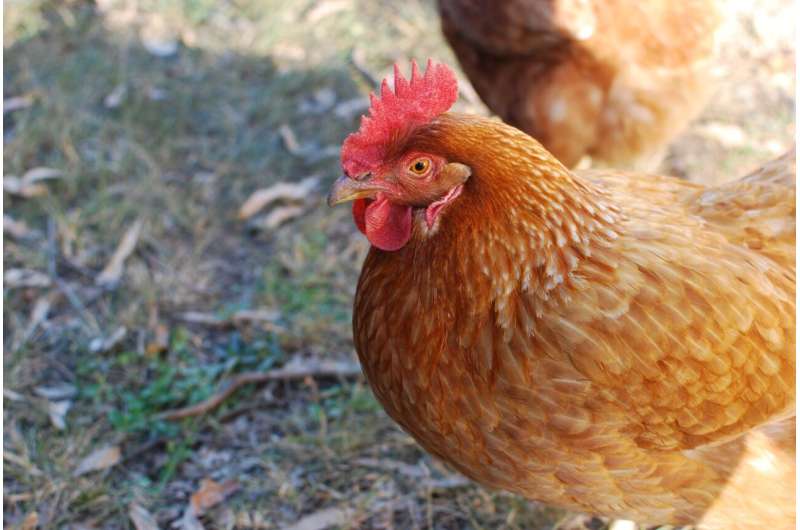Infection
New treatment to tackle infections resistant to antibiotics in chickens
An innovative treatment paves the way for reducing antimicrobial resistance in the treatment of a deadly infection in chickens, according to an international team of researchers led by the University of Surrey. The groundbreaking study investigated the effectiveness of a novel metal-derived complex in treating Avian Pathogenic Escherichia coli (APEC), a serious respiratory infection of chickens that has become increasingly more resistant to antibiotics. A growing body of evidence indicates that the APEC could potentially spread to humans.
The international research team also included the University of Surrey, the Animal and Plant Health Agency, the University of Connecticut, the University of Sheffield and Institut für Anorganische Chemie, Julius-Maximilians-Universität Würzburg. The study was published in the journal Veterinary Microbiology.
Professor Roberto La Ragione, Professor of Veterinary Microbiology and Pathology at the University of Surrey, said, “Antimicrobial resistance is one of the biggest threats to human and animal health. Not being able to use antibiotics to treat an infection not only prolongs an illness and associated welfare issues, but also increases the likelihood of it spreading.
“Coronavirus demonstrated how easily a pandemic can happen, and the threat of another is looking more likely as antibiotics to treat simple bacterial infections are no longer working.”
To test the effectiveness of the metal complex, manganese carbonyl, researchers worked with the Greater Wax Moth larvae and APEC. Split into two groups, the first received manganese carbonyl, while the second, the controls, received either a phosphate-buffered saline (PBS) or dimethyl sulfoxide (DMSO). After four days, the survival rate for the larvae that received manganese carbonyl was between 56% and 75%, whereas in the control group, the survival rate was between 25% and 45% (PBS) and 19% and 45% (DMSO), demonstrating the protective effect of the complex.
The test was repeated in chickens infected with APEC, who again received either manganese carbonyl or PBS. Bacterial shedding identified in the feces of the chickens was significantly lower 24 hours post-treatment in those who received manganese carbonyl compared to the PBS control group, indicating bacterial killing induced by the compound. This is supported by caecal samples taken three days post-treatment which again found significantly fewer bacteria in those that received manganese carbonyl. Examination of tissue samples from the livers of the birds indicated no toxic effects from the metal compound, which was observed in the larvae.
Dr. Jonathan Betts, a research fellow at the University of Surrey School of Veterinary Medicine, said, “The development of alternatives to antibiotics is vital to safeguard our future health. Metal complexes such as manganese carbonyl could do this, as we have shown not only are they effective, but they are much cheaper to produce than traditional antibiotics.
“Discovering the effectiveness of manganese carbonyl in treating APEC is a monumental step forward in tackling antimicrobial resistance as it shows we don’t necessarily need more antibiotics; we just need to think more innovatively in developing treatments.”
More information:
Jonathan W. Betts et al, The manganese carbonyl complex [Mn(CO)3(tqa-κ3N)]Br: A novel antimicrobial agent with the potential to treat avian pathogenic Escherichia coli (APEC) infections, Veterinary Microbiology (2023). DOI: 10.1016/j.vetmic.2023.109819
Provided by
University of Surrey
Citation:
New treatment to tackle infections resistant to antibiotics in chickens (2023, July 19)
retrieved 19 July 2023
from https://phys.org/news/2023-07-treatment-tackle-infections-resistant-antibiotics.html
This document is subject to copyright. Apart from any fair dealing for the purpose of private study or research, no
part may be reproduced without the written permission. The content is provided for information purposes only.

